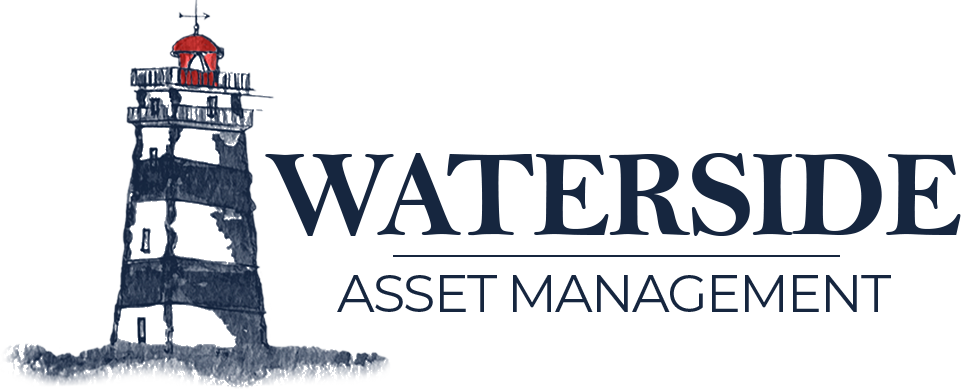Sustainability Risks
Waterside Asset Management – Sociedade Gestora de Organismos de Investimento Coletivo, S.A. (“WAM”) is a company registered with the Portuguese Securities Market Commission under the applicable national legislation.
Its primary activity involves managing Alternative Investment Funds (AIFs), making it subject to Regulation (EU) 2019/2088 of the European Parliament and the Council of 27 November 2019 on sustainability-related disclosures in the financial services sector (Sustainable Finance Disclosure Regulation – “SFDR Regulation”), that sets out a standardised framework of transparency requirements for the financial services sector, including the obligation for financial market participants to disclose and regularly update sustainability-related information on their websites regarding their investment decision-making processes.
As a diligent entity, WAM upholds the highest ethical standards, aligning its conduct with key principles and best practices in environmental, social, and governance (“ESG”) sustainability, including sustainable investment. It acknowledges that environmental and/or social risks associated with the assets it manages can affect its activities and influence investment returns over the course of the investment cycle.
Given the crucial role of sustainable development within both the financial system and the corporate sector and considering the potential impact of sustainability risks on the value of the assets under management, WAM conducts thorough assessments of all relevant risks on a case-by-case basis. While sustainability risks are considered secondary, their evaluation depends on the specific structure and characteristics of each investment, always in line with the mandates defined in the management agreement.
Non-Consideration of Negative Impacts of Investment Decisions on Sustainability Factors
Despite its thorough and methodical approach to assessing sustainability risks, WAM does not currently consider the adverse impacts of investment decisions on sustainability factors for the following reasons:
- The scale, nature, and type of investment activity, particularly in sectors not deemed high-risk in terms of sustainability or governance concerns, pose significant challenges in measurement.
- The assets in which the companies it manages invest do not currently disclose, or lack adequate and/or satisfactory information on sustainability, particularly regarding the indicators set out in Annex I of Commission Delegated Regulation (EU) 2022/1288 of 6 April 2022, which supplements the SFDR Regulation in this regard, making it unfeasible to obtain such data with resources considered justified and proportionate to the size and scope of both the companies and WAM itself.
- WAM’s management agreements do not currently require sustainability factors to be taken into account in the decision-making processes of the companies under its management.
- The absence of clear and consistent criteria concerning sustainability factors.
- The fragmented and still-developing nature of the current legislative framework.
- The insufficiency of publicly available market data.
- The necessity of implementing methodologies and metrics tailored to the specific nature and characteristics of WAM’s managed companies.
Nevertheless, by carefully considering sustainability risks within its management processes and taking into account the nature, scale, and complexity of the companies under its management, WAM believes that adverse impacts are significantly mitigated.
Accordingly, for the reasons outlined above and in line with Article 4 of the SFDR Regulation, WAM considers that the necessary conditions for properly factoring in the adverse impacts of investment decisions on sustainability factors are not currently met.
Furthermore, as of the present date, WAM is not obliged to consider the adverse impacts of investment decisions on sustainability factors because (i) it does not meet the criteria set out in Article 4(3) and (4) of the SFDR Regulation, which define large entities, nor (ii) does it currently market or manage venture capital funds that promote environmental or social characteristics, or a combination of both (light green products under Article 8 of the SFDR Regulation), or funds with a sustainable investment objective (dark green products under Article 9 of the SFDR Regulation).
Remuneration Policy
WAM’s current remuneration policy takes into account the integration of sustainability risks; however, remuneration is not solely determined by the achievement of specific sustainability objectives.
Rather than being treated as a separate and distinct performance criterion, sustainability risks are incorporated proportionally—depending on the nature of the risk—into a broader assessment of each employee’s contribution to WAM and the company’s overall performance. This evaluation considers the attainment of sustainability objectives and encompasses the procedures and practices adopted by the company to identify, measure, manage, and monitor various risks, including sustainability risks.
Nonetheless, WAM formulates its remuneration policies in compliance with applicable legislation, ensuring that the policy aligns employees’ personal objectives with WAM’s long-term interests, as well as those of the companies it manages and their shareholders. This approach promotes stable and sustainable employment, job security, and fair compensation for all employees.
WAM recognises the importance of incorporating sustainable investment objectives into its remuneration policy while maintaining fairness, equity, and non-discriminatory practices. ESG factors indirectly contribute to the remuneration framework as one of the criteria considered in employee performance evaluations, thereby fostering team cohesion, efficiency, and diversity.
Final Considerations
To minimise information asymmetry and enhance transparency regarding the integration of sustainability risks into investment decisions, all the aforementioned information is accessible to all WAM employees and regular service providers and has been approved by WAM’s Board of Directors.
WAM is committed to keeping this information up to date, reviewing it annually, and adjusting it in line with applicable legislation and best market practices.
